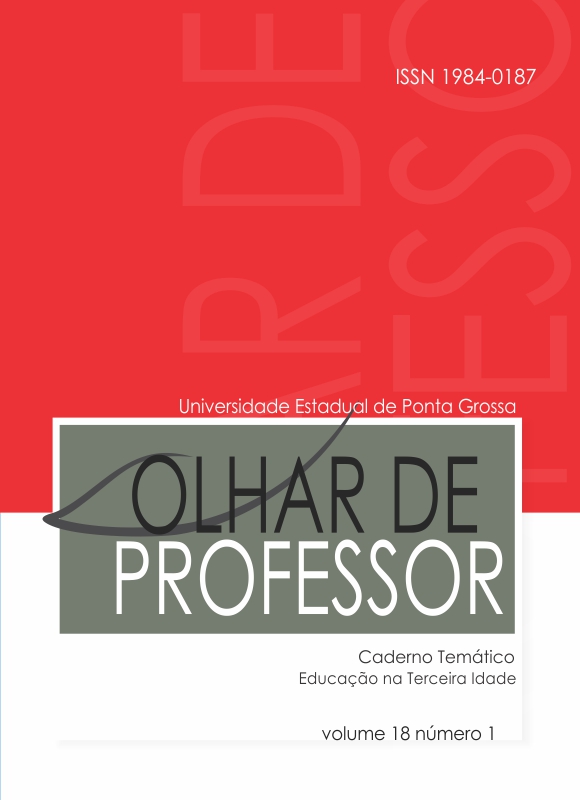TERCERA EDAD: UN BUEN MOMENTO PARA APRENDER UNA LENGUA EXTRANJERA
Main Article Content
Abstract
lleva al concepto de que estudiar español es muy fácil, pero al estar en contacto con la lengua extranjera
muchos estudiantes brasileños cambian ese concepto y acaban hablando el “portuñol”, debido a las
interferencias tanto lingüísticas como pragmáticas. El objetivo de ese trabajo es verificar ese proceso y
la enseñanza de la Lengua Española para los Unatianos, que son personas mayores que están vinculadas
al proyecto de Extensión de la Universidad Abierta a la Tercera Edad (UNATI), de la Universidad
Estadual del Centro-Oeste de Guarapuava (UNICENTRO). La UNATI ofrece varias modalidades:
desde actividades físicas como Hidroterapia, TAI-CHI, Actividades Deportivas, Juegos en el Gimnasio
de Deportes del CEDETEG, además de actividades sociales como el Grupo de Danza Outono Dourado,
que realiza varias presentaciones en los eventos de la ciudad y región, y participa de Festivales de Danza.
Los alumnos tambiém tienen clases de Canto, Informática e Historia, para fortalecer el aprendizaje y tener una interacción con personas de otros países y sanar esas cuestiones de semejanzas y confusionesentre el espanhol y el português La UNATI en contacto con el PROMUL (Programa Multicultural
de Línguas) firmó un convenio donde ofrecen clases de Lengua Española e Inglesa. A partir de ese tópico serán analizadas las expectativas y las dificultades de los alumnos en el proceso de enseñanza y aprendizaje de esos idiomas, y también será trazado un recorrido histórico sobre como iniciaron lasactividades en la Universidad (UNICENTRO).
Downloads
Article Details
Authors who publish in this journal agree with the following terms:
a) Authors keep the copyrights and concede the right of its first publication to the magazine. The work piece must be simultaneously licensed on the Creative Commons Attribution License which allows the paper sharing, and preserves both the author identity and the right of first publication to this magazine.
b) Authors are authorized to assume additional contracts separately, to not-exclusively distribution of the paper version published in this magazine (e.g.: publish in institutional repository or as a book chapter), with the author identity recognition and its first publication in this magazine.
c) Authors are permitted and stimulated to publish and distribute their papers online (e.g.: in institutional repository or on their personal webpage), considering it can generate productive alterations, as well as increase the impact and the quotations of the published paper.
d) This journal provides public access to all its content, as this allows a greater visibility and reach of published articles and reviews. For more information on this approach, visit the Public Knowledge Project, a project that developed this system to improve the academic and public quality of the research, distributing OJS as well as other software to support the publication system of public access to academic sources.
e) The names and e-mail addresses on this site will be used exclusively for the purposes of the journal and are not available for other purposes.

This work is licensed under a Creative Commons Attribution 4.0 International License.





